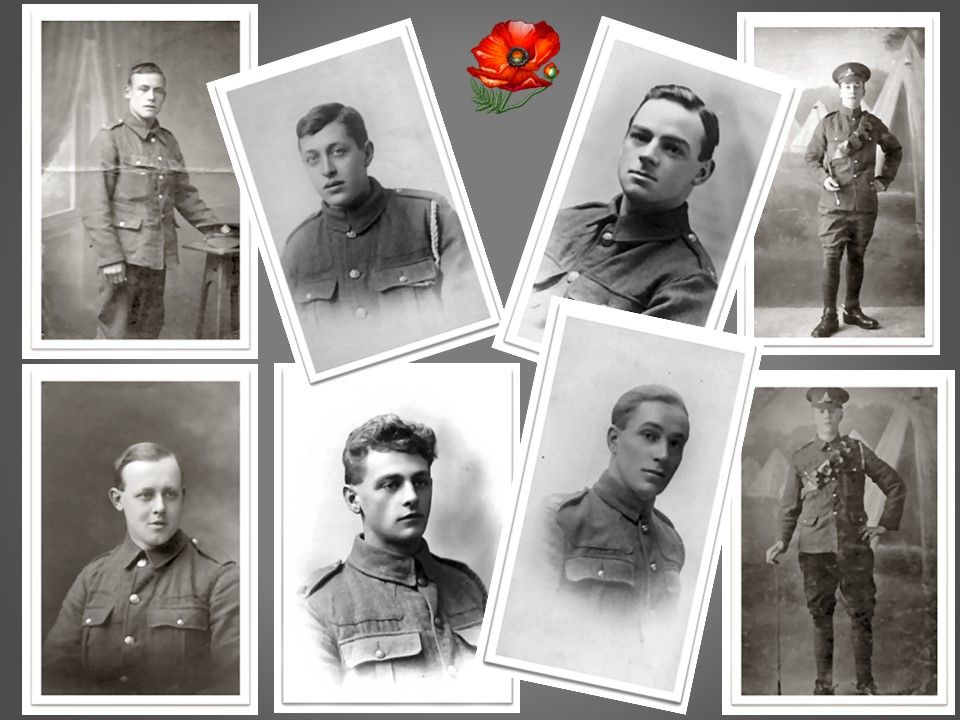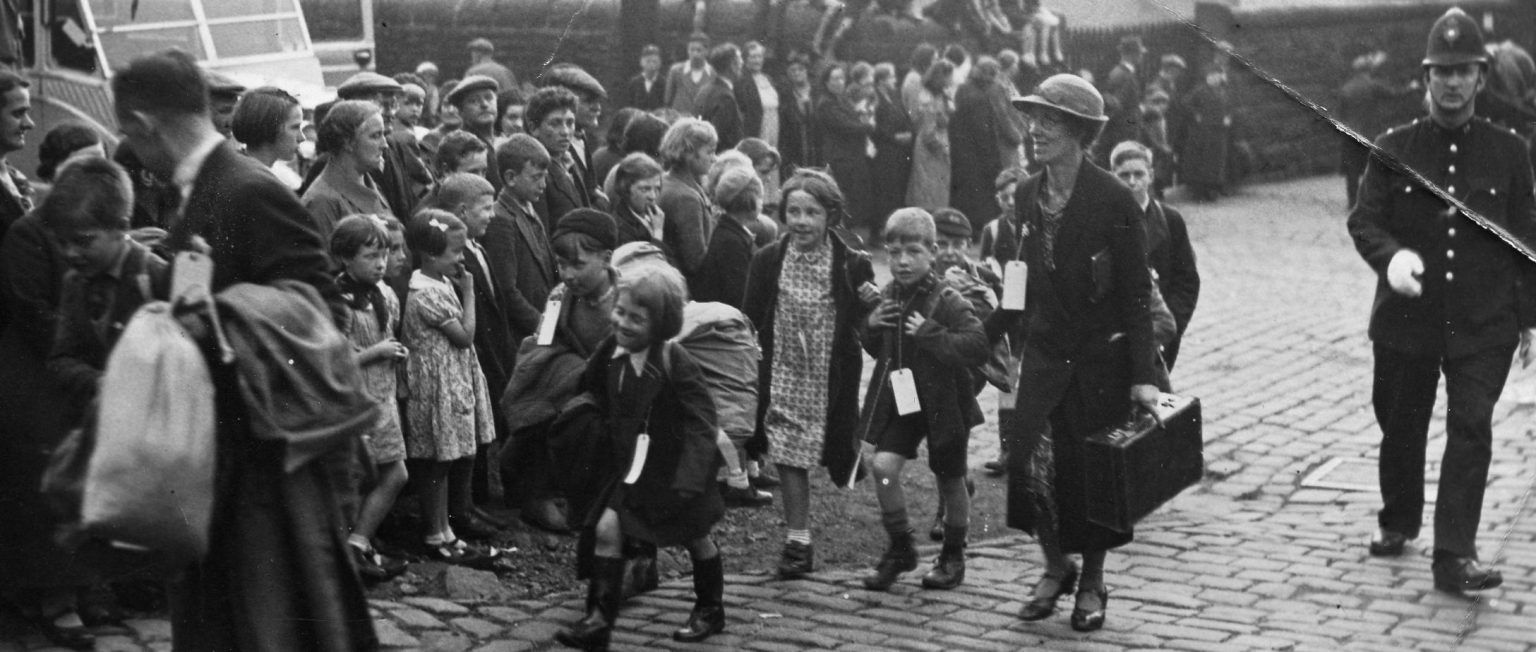Bacup at War
When last we saw his smiling face, He looked so strong and brave; We little thought how soon he’d be Laid in a soldiers grave

Bacup in WW1
Great Britain declared war on Germany at 11 p.m. on Tuesday the 4th of August. Within hours of the declaration, the control of the railways had been taken over by the Government to facilitate troop movements, stores, and food supplies. Here at home, families stood side by side on the railway platforms of Bacup, Stacksteads and Waterfoot. Waving off their menfolk as they left for a war described as one like no other, one that would end all wars and one that would be over by Christmas.
Throughout the war, the nurses of the Bacup St John Ambulance Brigade worked tirelessly to care for and comfort over 738 wounded soldiers who came to recover at the auxiliary hospitals of Fern Hill and Acre Mill, Stacksteads. For many other women, their roles in the community changed unrecognizably when they took on the jobs once done by the men. With the sinking of the ships came food shortages, and the propaganda posters urged mothers to save bread and waste nothing. Everyone was encouraged to grow their food in times of harsh rationing. Even the local policemen put down their truncheons and picked up the plough to till the ground at the once stately home of Stubbylee. Planting crops that would be tended and cared for by young and old alike.
In July 1918 local doctors were left puzzled and mystified by the appearance of a deadly flu that killed young and old alike. This would become known as the “Spanish Flu” and it is estimated that over 228,000 people died in the UK because of this dreadful illness. A few months later on 11 November 1918, it was a time for celebration when Peace was finally declared. The people of Bacup and Stacksteads rushed onto the streets to celebrate. The war was finally over.
Bacup’s first reported war casualty was Martin Farragher, born in Bacup he was a married man aged 31, and a reservist. Martin was a member of the 2nd Battalion Lancashire Fusiliers, who were part of the 12th brigade 4th division who first went into battle with the Germans at La Cateau on the 26th of August a battle in which the British troops were heavily outnumbered.
Over 570 men from Bacup and Stacksteads paid the ultimate sacrifice during WW1. I am happy to provide information on any of the casualties. Please use the contact form below and include as much information as possible.
Check the Blog for more stories on Bacup At War.
Bacup in WW2

Sunday 3 September 1939 is now a historic date in British and world history. On that date at 11.15 am British Prime Minister Neville Chamberlain announced that Britain was at war with Germany. As the New Year of 1939 swept in on a snowstorm, which lasted for over a week, local quarrymen were unable to work due to the snow and ice with eighteen degrees of frost registered at Bacup on one night. Football matches were called off and a heavy fall of snow caused a train to jump the tracks at Bacup railway station, preparations for war were being made all over the country.
A time of blackouts, air raid sirens and bombs, of a time when the first trainload of evacuees from Manchester arrived in Bacup, as crowds of sightseers gathered outside the train station, to watch as 400 evacuees waving handkerchiefs and singing “pack up your troubles in your old kit bag” poured onto the platform to begin a whole new adventure.
Those who could remember the First World War looked on once again as another generation signed up and left to serve their country and, for those who could not; they still did their duty here on the Bacup Home Front. Those who were too old to serve in the forces joined the home guard, Police specials, civil defence, first aid parties or the W.V.S who made thousands of war comforts and hospital supplies in addition to helping to organise the reception of over 3,000 evacuees who were billeted in Bacup during the war. This was a time when a story in the newspaper columns about the price of milk or restrictions on coal ran alongside the story of a sinking ship and the death of yet another local hero or another prisoner of war and another mother’s sorrow.
Of midnight celebrations when the final battles were fought and loved ones returned home, another generation scarred by the horrors of battle, captivity and death and for over 148 families the anguish of empty chairs and silent voices.
148 men and 1 woman from Bacup and Stacksteads paid the ultimate sacrifice during WW2. I am happy to provide information on any of the casualties. Please use the contact form below and include as much information as possible.
Check the Blog for more stories on Bacup At War.